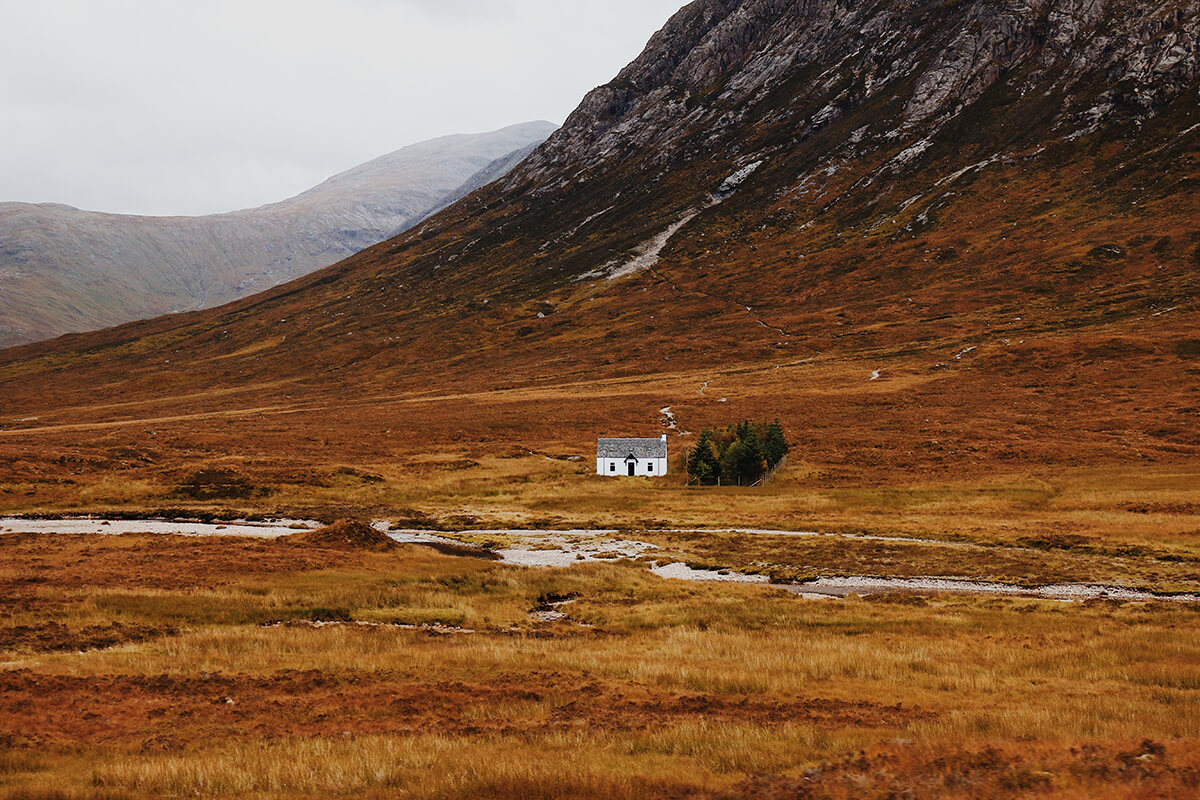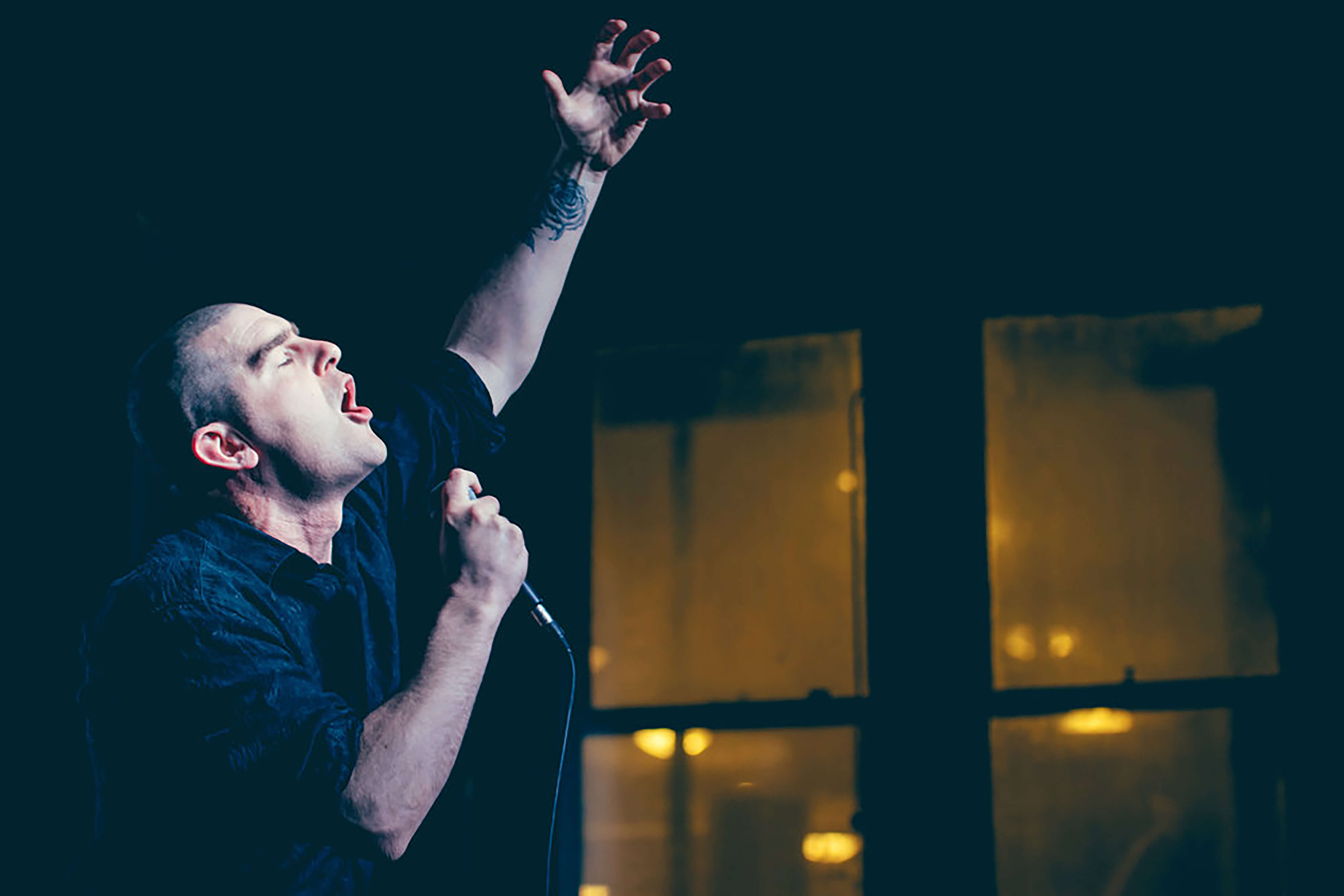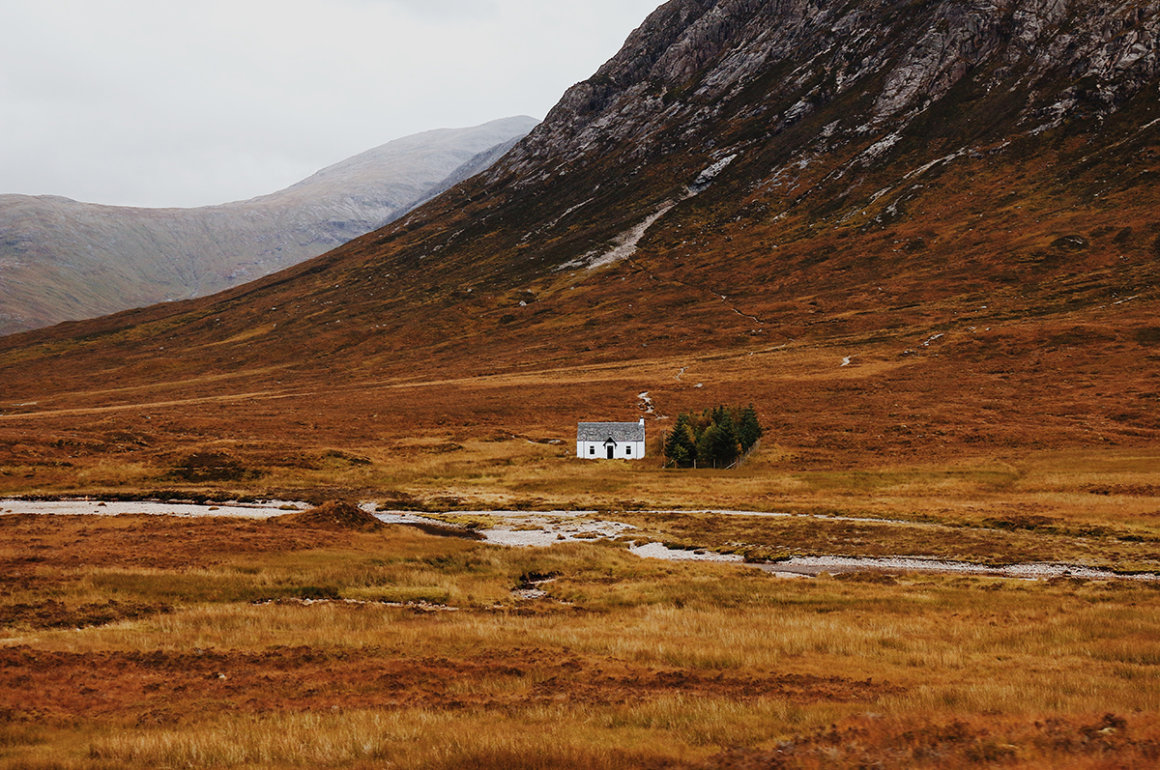
Glencoe, Scotland. Image by Max Hermansson
Scotland was recently crowned the most beautiful country in the world; it conjures up images of wild northern mountain rises, plunging cliffs and bottomless lochs. The combination of Scotland’s bustling cultural hubs with its raw, breath-taking landscapes makes it seem only natural that artists and poets would gravitate towards this northern haunt. Rhiannon Williams turns the spotlight on Scotland’s best poetry nights and slams, and speaks to The Loud Poets collective about the poet’s role in contemporary society.
In both Glasgow and Edinburgh today there is a veritable traffic jam of poetry nights, collectives and slams all fuelled by furious creation. These include the regular Illicit Ink showcases which like to focus upon ‘the sinister, the witty and the weird’, or collective Inky Fingers who run writers’ workshops as well as incredibly cool performance nights in Edinburgh at the popular Fringe venue Summerhall.
Follow LUX on Instagram: the.official.lux.magazine
Poets and the poetry community alike meet to learn from each other, share ideas, and of course laugh and enjoy themselves – Edinburgh is not the capital of comedy for nothing, and a lot of the poems performed will jump over into being stand-up sets too. This is the case with Neu! Reekie! which often set up at the quirky Monkey Barrel Comedy club. Whilst, Growing Underground at the Forest Café in Edinburgh is as unique as it gets. The radical arts hub hosts monthly nights, serves organic hot food, and has a basement gallery and venue space which is as mouth-wateringly atmospheric as it sounds.

Image by Perry Jonsson
Finally, there are the Loud Poets who, as with a lot of the poetry collectives, resist any concrete
definition. They’ve been together since 2014 and perform at Fringe shows, run club nights, create art and music and now have a hub in Annexe Arts of Edinburgh. Popular in both Glasgow and Edinburgh, the appeal is in the idea of noise, empowerment to speak out and encouraging others to do the same.
Rhiannon Williams: What’s the best part about being in a collective?
Loud Poets: The best part about being in a collective is the ability to bounce ideas off of your fellow artists and brainstorm together. In Loud Poets we have not only writers and performers but also musicians and video artists, so any time someone wants to create new work, they can draw upon a range of talented folks for ideas and advice.
RW: How did the members of the Loud Poets meet? What is your creative process; do you ever write collaboratively for example?
LP: As a collective we’ve grown and evolved over time: what began as a small group of creative folks DIYing a monthly showcase has ballooned into a larger collective containing many different artists. One of Loud Poets’ aims has always been to foster a community around spoken word in Scotland, so we’ve always encouraged folks who are passionate about the art form to get involved in the collective. It’s hard to say there’s any one creative process – it varies for the different artists and it’s always changing!
The diversity of creative practices in Loud Poets is, I think, one of the things that makes it work so well – if one person is stuck, another person can jump in with a different strategy to help. We do write collaboratively – we have several partner and group poems that we’ve performed as part of our Edinburgh Fringe shows. Those are challenging but also loads of fun to compose, since the process involves balancing different styles to create the piece that will work the best in live performance.
RW: Your work spans all kinds of medium, from physical performance to live music and visual arts. Where would you say the roots of the poetry lie for you?
LP: I think each member of LP would answer that question differently, which again I think is a good thing! We each draw upon different creative practices: for example, Kevin is a trained actor, Katie a trained dancer/choreographer, and Doug plays multiple instruments. As a collective we perceive performance poetry as a multi-medium art form to be experimented with, and we’ve had a lot of fun innovating at the edges of the genre.
RW: Which poets/artists/musicians are you excited about right now?
LP: It’s so hard to just pick a couple! One artist who LP has admired for a long time is the Leicester-based artist Jess Green, who not only writes and performs poems but also works with a live band and has recently penned a play! Jess often targets political inequalities through her sharp, beautifully realised poetry. We’ve recently fallen in love with Glasgow artist Sarah Grant, an incredibly talented film-maker who came along to LP last year and performed her first poem there to great success. Since then, she’s won two of our slams and graced our stages many times, as we can’t get enough of her often hilarious yet always powerful work.
Read next: Brisk walks and autumnal evenings at Coworth Park Hotel & Spa
RW: What do you do to prepare for the performance, just before going on stage? Any quirks or
particular thought processes to get into the zone?
LP: Again, this is different for everyone – we’ve tried doing team push-ups before shows but that
tradition didn’t last long… For some of us, it’s essential to run the poems either in our heads or out loud before performing, whereas for others they trust that the material is in there from prior
rehearsal. Some of us have physical warm-ups that we like to do so we can use our voices fully
onstage. Sometimes performing a certain poem, especially if it’s emotional and personal to the
performer, means taking an extra moment to mentally prepare before walking onstage. It really
varies!
RW: What kind of role has Scotland played in the content and inspiration of your writing?
LP: Again, this will really vary! Catherine Wilson and Katie Ailes have both written directly about Scotland, Catherine from her perspective of living here her whole life and Katie as an immigrant.
One thing that I’d say for everyone is that it’s great being in such a vibrant spoken word scene in
Scotland today. Spoken word across the UK is currently booming, so it’s a great time to engage in the art form. Scotland also has a cultural devotion to literature, especially live literary traditions, which makes it a fantastic environment for writers. We’re lucky to have resources like the Scottish Poetry Library, Scottish Storytelling Centre, Scottish Book Trust, and more organisations devoted to this art forms to support our work.

Image by Perry Jonsson
RW: What would you say is one of the most difficult things about being a poet today?
LP: Unfortunately, I think a lot of the general public thinks poetry isn’t for them and so don’t engage with it: perhaps in school they were taught work that wasn’t relevant to them or had to analyse it past the point where that was any fun. To quote the brilliant Adrian Mitchell, ‘most people ignore most poetry because most poetry ignores most people.’ Not to knock other writers at all, but if our work looks entirely inwards or is so experimental or reference-heavy as to be inaccessible, it’s not going to engage most folks.
Our core mission has always been to make work which is accessible and interesting to everyone: poetry which is exciting, which touches on issues in contemporary life, which is performed in a way that makes you sit on the edge of your seat. Our favourite thing to hear is someone admitting that they were dragged to one of our shows, swearing poetry wasn’t their thing, only to actually really enjoy it – or, even better, to enjoy it so much that they themselves were inspired to write a poem. So we want to change the assumption that poetry is an ivory tower by making work that encourages everyone to speak out.
Rhiannon Williams: Glasgow or Edinburgh?
Loud Poets: Ah, don’t ask us that! We’ve run monthly showcases in both cities for nearly three years now, and we love them both. The spoken word cultures in each city have slightly different flavours, Glasgow’s being more influenced by the fantastic Scottish rap scene and often quicker-paced than Edinburgh’s, which tends to have lots of international students and thus a wide pool of influences. We love booking artists from one city to perform in the other, not just with Glasgow and Edinburgh but across Scotland, to try to expose each city to the great artists and styles from elsewhere in Scotland and the UK.
RW: Highland Loch or a North Sea cliff face?
LP: Well, they say poets are narcissists, so I suppose the loch so we can stare at our reflections like Narcissus until we die? How’s that for a poetic answer… On the other hand, standing on a bleak cliff face with our hair tangling in the brutal wind sounds equally poetic… Tough choice. We’re going to have to go with Greggs. Whether it’s taking place in a pub, a club, beneath a café, in the streets or on the air, some of the most exciting and diverse poetry in the world is being created in Scotland right now, so head up whenever you can, open your ears, dig in with every sense. It’s a blast!







Recent Comments